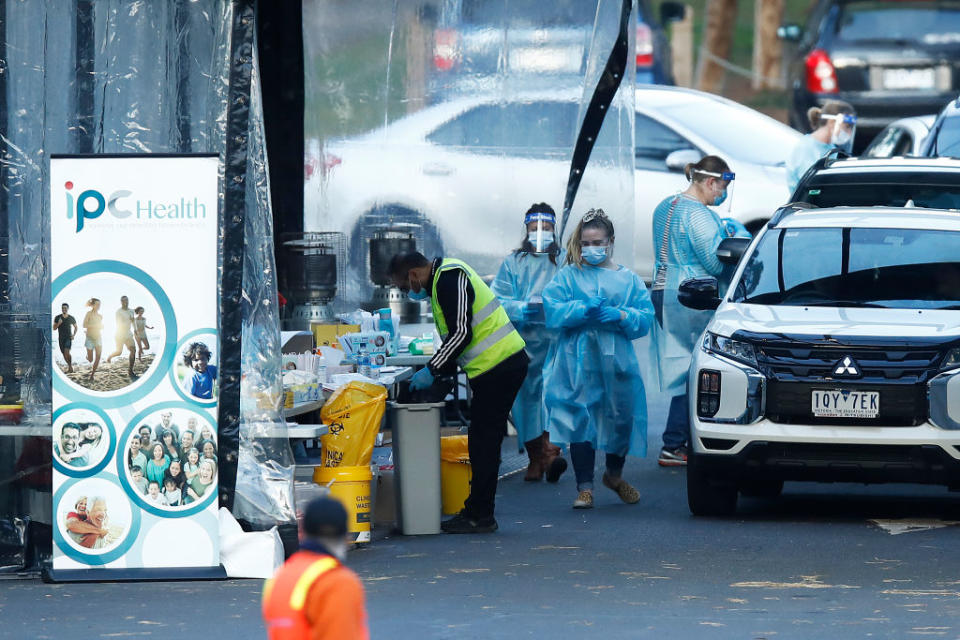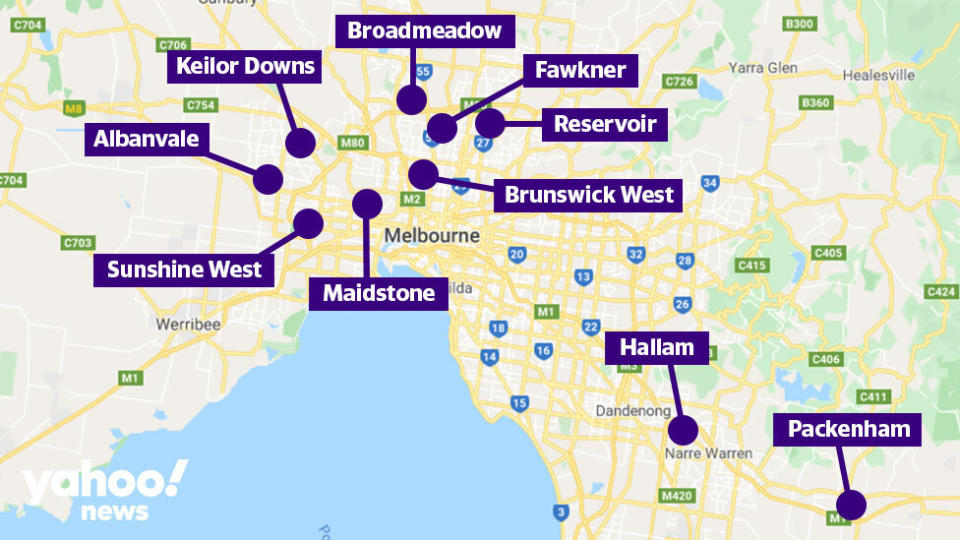'It's not pleasant': Controversial lockdown approach pushed for virus hotspots
While Victoria Premier Daniel Andrews reimposed restrictions on 10 postcodes on Tuesday, a leading epidemiologist has called on the Victorian government to go one step further.
Mary-Louise McLaws, a World Health Organisation advisor from the University of NSW, says Victoria needs to urgently ‘ring-fence’ Melbourne’s hotspots to prevent the coronavirus spreading further across the state.
She told ABC News 24 that the lockdown measure, which completely shuts off sections of a larger populated area and policing its boundary, is highly effective.
“It really does work,” she said, despite admitting “it’s not pleasant”.
She pointed to the success Chinese governments have had in implementing similar measures during the coronavirus pandemic, including in Beijing and Wuhan, that meant residents could not leave or enter specific areas, either suburbs or housing complexes.

"They [China] put in place the ring-fencing of cities, but have then instigated ring-fencing in hotspots within cities, and the success of that emboldens my idea that this could be the way to go," Ms McLaws, who recommended the measure in a review of Beijing’s 2003 SARS response, told the ABC.
Daily cases in Victoria were over 50 for two consecutive days for the first time since April 2 on Tuesday, with health authorities weighing up whether isolating those suburbs from the rest of Melbourne would help curtail the spread.

Isolating communities ‘not an easy task’
Yet it doesn’t come without its complications, with Ms McLaws saying it was vital to clearly identify who is to be included in the zones to avoid confusion.
Dr Norman Swan, the ABC’s medical expert who has fronted its coronavirus coverage, said ring-fencing was different to a lockdown, with the latter restricting residents to their home, which Mr Andrews enforced and will take effect at 11.59pm on Wednesday.
“This is more isolating an area so that people don't go in and out to the rest of Melbourne but they can move within the suburb,” he said.
“You're ghettoising, in essence, the people of that area for a couple of weeks.”
Mr Andrews announced police will patrol the streets to ensure residents are only leaving their home for work or school, care or care giving, daily exercise and food and essentials, yet police would not guard entrances and exits into the postcodes.
The announcement came after the premier confirmed that there were 64 new cases of coronavirus reported in the state in the past 24 hours.
While he called the method “difficult” and said closing off large suburbs was “not an easy task”, he too pushed for its introduction to prevent the outbreak from “paralysing” the state and nation.
Detailing elements of a ring-fence implementation, Dr Swan said public transport wouldn’t be able to stop in closed suburbs and would be surrounded by police to prevent people entering and leaving.
He said anyone who tested positive would likely be plucked from the suburb and isolated in quarantine.
Mr Andrews said the imposed restrictions starting on Wednesday night will include booze bus style enforcement from police, randomly stopping vehicles.
Restrictions could force residents to flee, mayor fears
Mayor of Darebin Susan Rennie, a local government area which incorporates Reservoir, one of the 10 suburbs identified for Victoria’s current testing blitz, questioned whether such a move would work and could in fact spread the virus further.
“I think there's a risk that people might panic and try to avoid it by going elsewhere. That's the last thing we'd like to see happen,” she told ABC News 24.
Ms McLaws said any roll out of this type of restrictions would only reveal its effectiveness in about two weeks due to the virus’s incubation period.
'I'm sick of it': Premier hits out at critics, reveals strict new border rule
'Four reasons' to leave home: Premier reveals strict new rules in virus hotspots
Letter warns of 'urgent' problem that could fuel coronavirus spread
Victoria’s Chief Health Officer Brett Sutton has said if ring-fencing was applied, a stay-at-home order would also be implemented, albeit “challenging” for those involved.
"It would be part of the new rule, to stay at home, that people would stay in their place of residence," he said.
"But it would be a significant logistical exercise to manage a stay-at-home [order] that is just about particular postcodes, particular suburbs or local government areas, so we have to think about all of those challenges."
Do you have a story tip? Email: newsroomau@yahoonews.com.
You can also follow us on Facebook, Instagram and Twitter and download the Yahoo News app from the App Store or Google Play.




